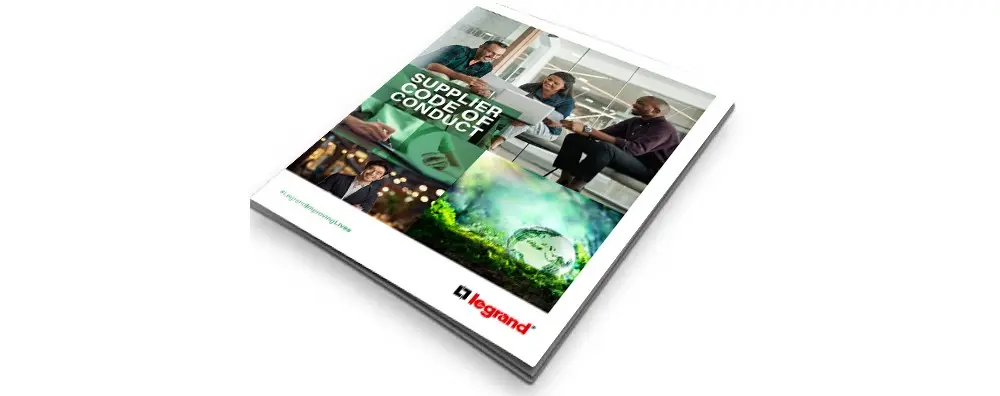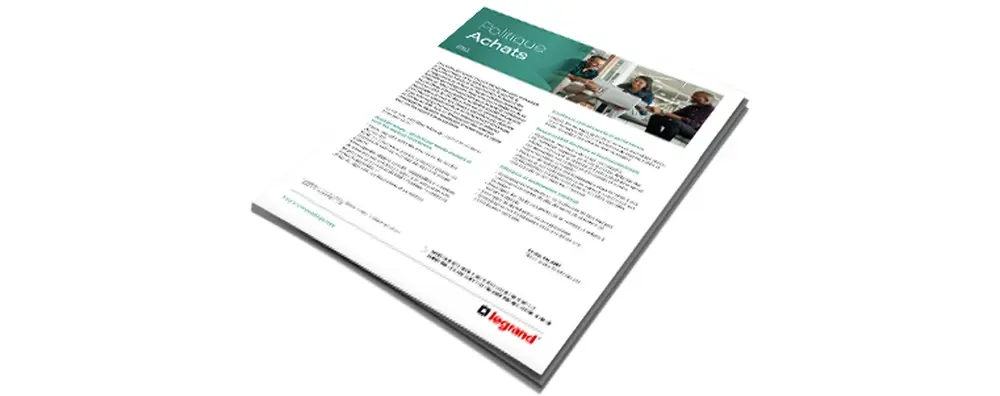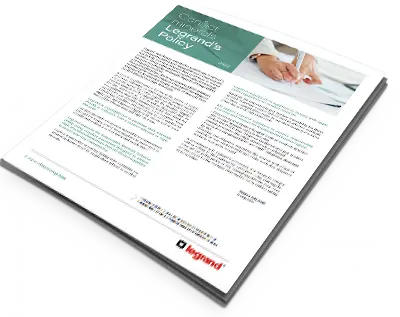Maintaining a responsible relationship with suppliers
 Behaving towards suppliers with fairness, transparency and impartiality, maintaining confidentiality, creating a contractual framework, observing business ethics, etc. these are the guidelines for the relationship Legrand intends to have with its suppliers.
Behaving towards suppliers with fairness, transparency and impartiality, maintaining confidentiality, creating a contractual framework, observing business ethics, etc. these are the guidelines for the relationship Legrand intends to have with its suppliers.
These topics and the behaviour to adopt are clearly set out in the code of ethics for supplier relationships deployed in the Purchasing Department, particularly in the context of the Group's compliance programme.
As a stakeholder in responsible supplier relations, Legrand helped to draw up the “Ten Commitments for Sustainable Purchasing Charter” in 2009 through the CDAF (Conseil National des Achats). It was one of the first signatories of this charter, which is now known as the “Responsible Supplier Relations Charter”.
In 2012, Legrand was one of the first four companies in France to receive this certification. The certification was renewed in late 2016, confirming Legrand's commitment and its responsible purchasing practices with its suppliers. One of the Charter's and the certification's good practices is to have balanced General Purchasing Terms and Conditions.
Legrand established a supplier mediation process in its General Purchasing Terms and Conditions back in 2010. In the event of a dispute, this process uses an internal mediator who is independent from the Purchasing function.
Contact the Internal Mediator









